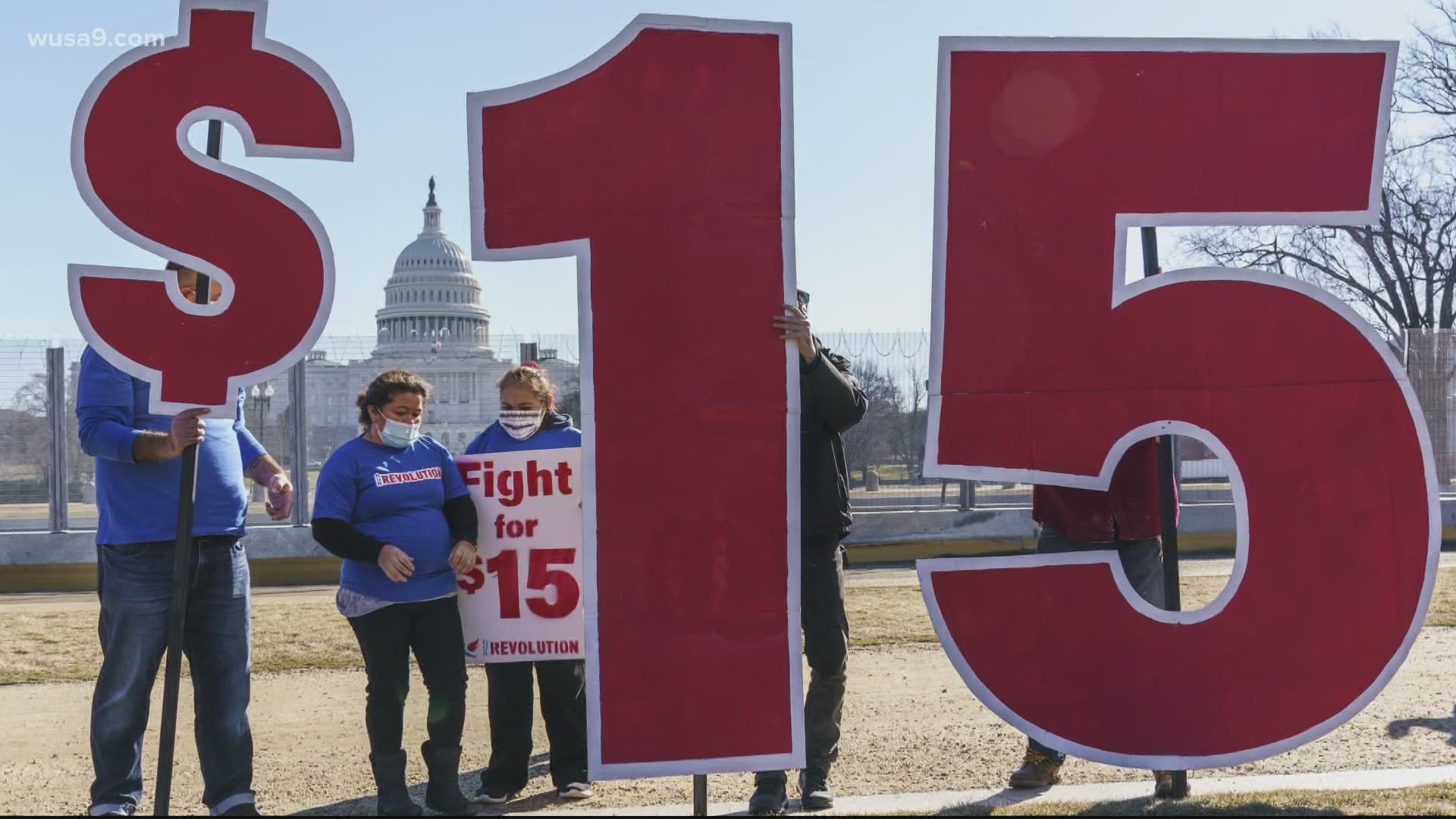WASHINGTON — Will Congress raise the minimum wage to $15 an hour?
Lawmakers included a federal wage hike in one of the versions of the COVID-19 relief bill, but it has faced a lot of resistance.
In the House of Representatives, the next economic relief bill includes a hike from the current $7.25 an hour to $15 an hour by 2025. But, in the Senate, it’s a nonstarter.
“Economists will love to tell you there's no such thing as a free lunch. And that's the same thing with a minimum wage," said Jason Fichtner, an economist from the Bipartisan Policy Center.
“Everything has tradeoffs and opportunity costs.”
First, the positives. At $15 an hour, the lowest salary an American can earn would be $31,000 a year.
The Congressional Budget Office (CBO), a nonpartisan economic arm of Congress, reports it would increase wages for 17 million Americans.
“That's a lot of people you'd help, you'd also minimize and reduce poverty by almost a million people, the CBO says 900,000,” Fichtner said. “But nothing [is] free.
Here’s the trade-off, the CBO projects at least 1.4 million Americans would lose their jobs as a result and would likely not be hired again.
“The higher you make the minimum wage, the greater the incentive is for an employer to find ways to automate to save money,” Fichtner explained.
That’s where the Senate isn’t sold on $15 an hour. But like all things on Capitol Hill, if Congress looks for it, there is a middle ground.
“Well, one of the things that come with the minimum wage, is that it has not been pegged to inflation,” Fichtner said.
If Congress tied the minimum wage to inflation, that would increase it $10 an hour or $11 an hour money. The CBO said that would raise pay for 5 million Americans and job losses would be around 400,000. Not the huge splash the house wanted to make, but an impact with fewer damaging tradeoffs.

